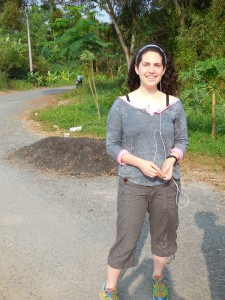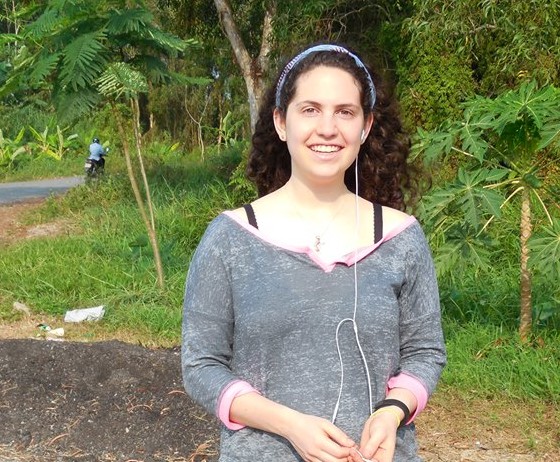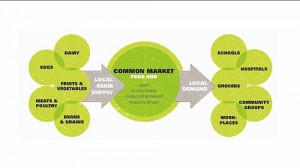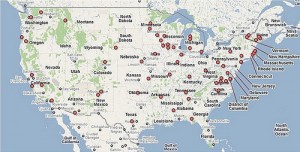A question that I continually struggle with is whether or not it is possible to influence or change the way people eat. If our goal is to increase the amount of local foods people eat, we are asking people to shift their diets in a certain way. Not only does eating locally change where your food comes from, but also what you eat. For me, when I eat locally, I rarely eat meat because local meat is more expensive. This isn’t a difficult transition for me because I am happy to supplant my diet with more fresh vegetables. However, for others there is less flexibility in changing the way they eat, whether it is because of taste preferences or accessibility. Then the question becomes, should we change the way people eat and is it even possible to do so?
One of my biggest passions in life is sharing food; I love to be able to share something that is really meaningful to me with others, especially when I made it myself. I feel excited and gratified when I am able to share something I really enjoy and see others enjoying it as well. While it seems so simple to me, to cook and share food with others, I often take for granted the differences between my food preferences and other people’s. Recently I tried to prepare a vegetarian meal for my friend and he essentially refused to eat it; it wasn’t in a rude way, but he simply doesn’t eat vegetables and wouldn’t have enjoyed it. I tried not to take it personally and accept that he has a different diet than I do, but I was having a hard time letting go because I wanted to be able to share food with him (plus I think the food I make is pretty good).
When it boils down to it, everyone has a different relationship with food. Food can be emotional, or food can be a means of sustenance. It is easy for me to be very emotional about food, it is something I care deeply about and have a connection with. This is a common thread in many parts of the local foods movement, I believe this movement is largely driven by people’s passion and emotions for food; but this can also be an obstacle in trying to start a larger social movement or reach a greater audience. This food movement needs passion and excitement to lead it, but at the same time, it can come off as un-relatable and even exclusive to those who don’t have as strong of a relationship with food. For example, in discussions around local or sustainable foods, I feel that the underlying implications are often that everyone should eat and like healthy, fresh foods (ie fruits and vegetables). The thought process is something along the lines of, if you know something is good for you, you should eat it, and if you know something is bad for you, you shouldn’t eat it. Seems simple enough, but I know that I often take for granted that this idea doesn’t come naturally to all. What people eat essentially comes down to each individual’s values and preferences, but I think these are also indicative of the values or lack there of in our food culture.
So, should we change the way people think about food and what they are eating? I think the answer is both yes and no. If we look at the data on diabetes and obesity and kids, then the answer is an overwhelming yes. The facts on children’s health being negatively impacted by highly processed foods is alarming, and it is clear that something in the food system should change. But at the same time, do you have to eat fruits and vegetables in order to be considered a “good” person? Definitely not. This brings me to the idea of food sovereignty, the right for people to define their own food systems and basically control what they eat. I believe strongly that everyone has the right to make their own food choices, whether it is local healthy foods, or McDonalds.
The next question is, is it even possible to change the way people think about food? This one I’m not sure about, my hope is yes, but I feel like people don’t always go about it the right way. Things that don’t work: Trying to guilt trip people by saying things like, “Do you know how bad that is for you?” or “Did you know that five puppies were killed so you could eat that hamburger?” (Ok obviously not as ridiculous as that, but I’m sure sometimes long winded environmental reasons for eating healthy foods can seem as obscure or ridiculous as that). If you don’t care about the food you’re eating, you’re probably not going to feel guilty about eating it either. “If you just try it, you’ll like it.” I used to think that my own passion of sharing food would influence others to care about food as well; if I could share with someone else how much I love food, maybe they would love it too. And that might work for one or two people, but I think caring about something requires a more internal force than me baking a pie and trying to force feed people. Lastly, “If fresh, healthy foods were cheaper and more accessible, more people would eat them.” This is true to an extent, but I think the absence of fresh foods in most people’s diet is more of a cultural or personal reason than financial.
I tried to reflect on my own food choices and why I care about what I eat. I usually try to carefully construct my plate with a variety of colorful vegetables, I follow the tastes I like, I prefer to eat foods that are good and healthy for me, and I like to feel responsible and conscious about what I put in my body, both health wise and for the greater food system. Basically, I genuinely care about food and how I eat it. So, how do we get people to care about food, and is it necessary for people to care about food to create widespread change in the local food system?
My biggest philosophy in eating food is everything in moderation, and I think that is one of the biggest ideas that has been lost in our modern food culture. I think bringing back the concept of moderation, rather than trying to tell people what they can or cannot eat, may be a more realistic and rational way of transitioning into a healthier food system. Eating McDonalds isn’t the end of the world, as long as you’re not eating it everyday. You don’t have to love vegetables, but try to eat them sometimes. I think engraining the idea of moderation into the way people eat can have a positive effect on people’s relationships to food and the food system. People won’t start eating local kohlrabi everyday, or suddenly start caring more about what they eat, but if we try to integrate local foods into people’s diets in moderation, then it is one step forward in increasing the amount of local foods consumed.
 Hi! My name is Abby Cheskis, and over the past two years I have started to learn about and question the current industrial food system. I’m from Westchester, New York and I’m studying environmental studies and psychology, with the hope that this link will enable me to gain a new perspective in regards to the food system, particularly in relation to climate change. Although I’m technically in the class of 2016, I just took a gap year and am transferring colleges, so I will be graduating in 2017. When I heard about FoodWorks, I knew that it would be a great way for me to further my academic learning about the food system, as well as gain experience working with organizations which are promoting change. I’m really looking forward to learning about and becoming a part of Louisville’s food community, as well as getting to know the other interns. It’s going to be an awesome summer!
Hi! My name is Abby Cheskis, and over the past two years I have started to learn about and question the current industrial food system. I’m from Westchester, New York and I’m studying environmental studies and psychology, with the hope that this link will enable me to gain a new perspective in regards to the food system, particularly in relation to climate change. Although I’m technically in the class of 2016, I just took a gap year and am transferring colleges, so I will be graduating in 2017. When I heard about FoodWorks, I knew that it would be a great way for me to further my academic learning about the food system, as well as gain experience working with organizations which are promoting change. I’m really looking forward to learning about and becoming a part of Louisville’s food community, as well as getting to know the other interns. It’s going to be an awesome summer!


